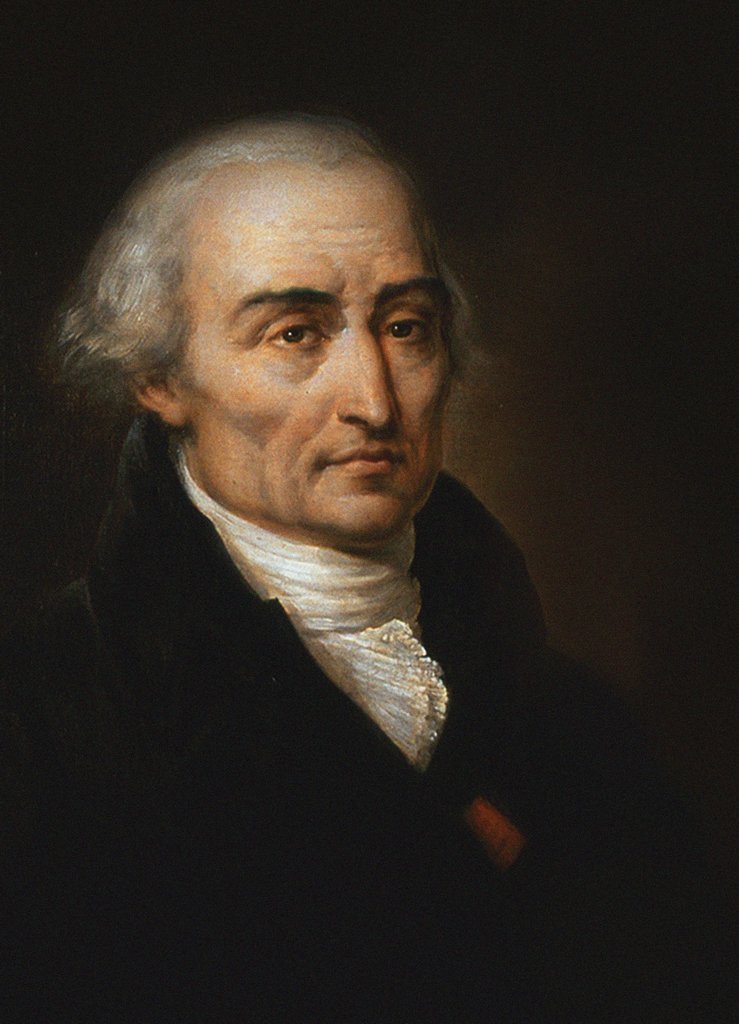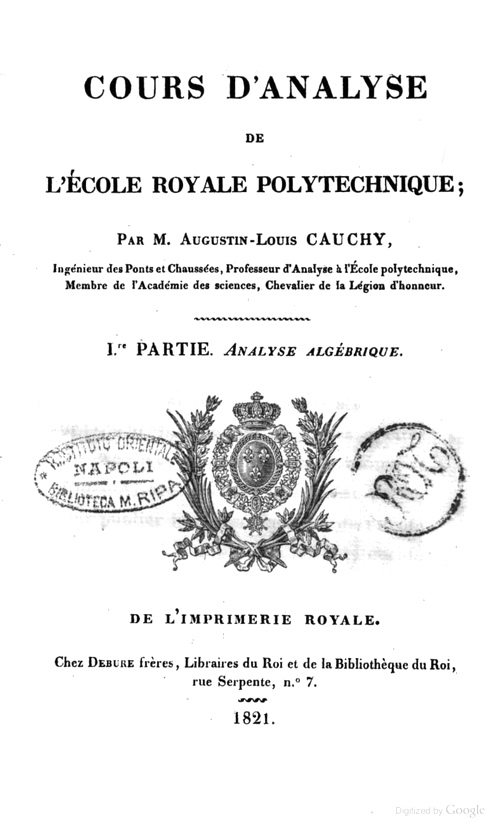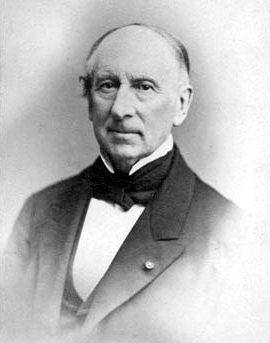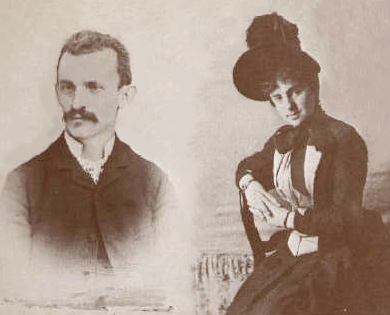|
Principle Of Permanence
In the history of mathematics, the principle of permanence, or law of the permanence of equivalent forms, was the idea that algebraic operations like addition and multiplication should behave consistently in every number system, especially when developing extensions to established number systems. Before the advent of modern mathematics and its emphasis on the axiomatic method, the principle of permanence was considered an important tool in mathematical arguments. In modern mathematics, arguments have instead been supplanted by rigorous proofs built upon axioms, and the principle is instead used as a heuristic for discovering new algebraic structures. Additionally, the principle has been formalized into a class of theorems called transfer principles, which state that all statements of some language that are true for some structure are true for another structure. History The principle was described by George Peacock in his book ''A Treatise of Algebra'' (emphasis in original): ... [...More Info...] [...Related Items...] OR: [Wikipedia] [Google] [Baidu] |
History Of Mathematics
The history of mathematics deals with the origin of discoveries in mathematics and the mathematical methods and notation of the past. Before the modern age and the worldwide spread of knowledge, written examples of new mathematical developments have come to light only in a few locales. From 3000 BC the Mesopotamian states of Sumer, Akkad and Assyria, followed closely by Ancient Egypt and the Levantine state of Ebla began using arithmetic, algebra and geometry for purposes of taxation, commerce, trade and also in the patterns in nature, the field of astronomy and to record time and formulate calendars. The earliest mathematical texts available are from Mesopotamia and Egypt – '' Plimpton 322'' ( Babylonian c. 2000 – 1900 BC), the ''Rhind Mathematical Papyrus'' ( Egyptian c. 1800 BC) and the '' Moscow Mathematical Papyrus'' (Egyptian c. 1890 BC). All of these texts mention the so-called Pythagorean triples, so, by inference, the Pythagorean theorem seems to be the most anci ... [...More Info...] [...Related Items...] OR: [Wikipedia] [Google] [Baidu] |
Ernst Mach
Ernst Waldfried Josef Wenzel Mach ( , ; 18 February 1838 – 19 February 1916) was a Moravian-born Austrian physicist and philosopher, who contributed to the physics of shock waves. The ratio of one's speed to that of sound is named the Mach number in his honour. As a philosopher of science, he was a major influence on logical positivism and American pragmatism. Through his criticism of Newton's theories of space and time, he foreshadowed Einstein's theory of relativity. Biography Mach was born in Chrlice (german: Chirlitz), Moravia (then in the Austrian Empire, now part of Brno in the Czech Republic). His father, who had graduated from Charles-Ferdinand University in Prague, acted as tutor to the noble Brethon family in Zlín in eastern Moravia. His grandfather, Wenzl Lanhaus, an administrator of the Chirlitz estate, was also master builder of the streets there. His activities in that field later influenced Ernst Mach's theoretical work. Some sources give Mach's birthplac ... [...More Info...] [...Related Items...] OR: [Wikipedia] [Google] [Baidu] |
Harvard University Press
Harvard University Press (HUP) is a publishing house established on January 13, 1913, as a division of Harvard University, and focused on academic publishing. It is a member of the Association of American University Presses. After the retirement of William P. Sisler in 2017, the university appointed as Director George Andreou. The press maintains offices in Cambridge, Massachusetts near Harvard Square, and in London, England. The press co-founded the distributor TriLiteral LLC with MIT Press and Yale University Press. TriLiteral was sold to LSC Communications in 2018. Notable authors published by HUP include Eudora Welty, Walter Benjamin, E. O. Wilson, John Rawls, Emily Dickinson, Stephen Jay Gould, Helen Vendler, Carol Gilligan, Amartya Sen, David Blight, Martha Nussbaum, and Thomas Piketty. The Display Room in Harvard Square, dedicated to selling HUP publications, closed on June 17, 2009. Related publishers, imprints, and series HUP owns the Belknap Press imprint, whi ... [...More Info...] [...Related Items...] OR: [Wikipedia] [Google] [Baidu] |
Joseph-Louis Lagrange
Joseph-Louis Lagrange (born Giuseppe Luigi LagrangiaJoseph-Louis Lagrange, comte de l’Empire ''Encyclopædia Britannica'' or Giuseppe Ludovico De la Grange Tournier; 25 January 1736 – 10 April 1813), also reported as Giuseppe Luigi Lagrange or Lagrangia, was an and , later naturalized [...More Info...] [...Related Items...] OR: [Wikipedia] [Google] [Baidu] |
Leonhard Euler
Leonhard Euler ( , ; 15 April 170718 September 1783) was a Swiss mathematician, physicist, astronomer, geographer, logician and engineer who founded the studies of graph theory and topology and made pioneering and influential discoveries in many other branches of mathematics such as analytic number theory, complex analysis, and infinitesimal calculus. He introduced much of modern mathematical terminology and notation, including the notion of a mathematical function. He is also known for his work in mechanics, fluid dynamics, optics, astronomy and music theory. Euler is held to be one of the greatest mathematicians in history and the greatest of the 18th century. A statement attributed to Pierre-Simon Laplace expresses Euler's influence on mathematics: "Read Euler, read Euler, he is the master of us all." Carl Friedrich Gauss remarked: "The study of Euler's works will remain the best school for the different fields of mathematics, and nothing else can replace it." Euler is a ... [...More Info...] [...Related Items...] OR: [Wikipedia] [Google] [Baidu] |
Archive
An archive is an accumulation of historical records or materials – in any medium – or the physical facility in which they are located. Archives contain primary source documents that have accumulated over the course of an individual or organization's lifetime, and are kept to show the function of that person or organization. Professional archivists and historians generally understand archives to be records that have been naturally and necessarily generated as a product of regular legal, commercial, administrative, or social activities. They have been metaphorically defined as "the secretions of an organism", and are distinguished from documents that have been consciously written or created to communicate a particular message to posterity. In general, archives consist of records that have been selected for permanent or long-term preservation on grounds of their enduring cultural, historical, or evidentiary value. Archival records are normally unpublished and almost alway ... [...More Info...] [...Related Items...] OR: [Wikipedia] [Google] [Baidu] |
Generality Of Algebra
In the history of mathematics, the generality of algebra was a phrase used by Augustin-Louis Cauchy to describe a method of argument that was used in the 18th century by mathematicians such as Leonhard Euler and Joseph-Louis Lagrange,. particularly in manipulating infinite series. According to Koetsier,. the generality of algebra principle assumed, roughly, that the algebraic rules that hold for a certain class of expressions can be extended to hold more generally on a larger class of objects, even if the rules are no longer obviously valid. As a consequence, 18th century mathematicians believed that they could derive meaningful results by applying the usual rules of algebra and calculus that hold for finite expansions even when manipulating infinite expansions. In works such as ''Cours d'Analyse'', Cauchy rejected the use of "generality of algebra" methods and sought a more rigorous foundation for mathematical analysis. Example An example is Euler's derivation of the series f ... [...More Info...] [...Related Items...] OR: [Wikipedia] [Google] [Baidu] |
Cours D'Analyse
''Cours d'Analyse de l’École Royale Polytechnique; I.re Partie. Analyse algébrique'' is a seminal textbook in infinitesimal calculus published by Augustin-Louis Cauchy in 1821. The article follows the translation by Bradley and Sandifer in describing its contents. Introduction On page 1 of the Introduction, Cauchy writes: "In speaking of the continuity of functions, I could not dispense with a treatment of the principal properties of infinitely small quantities, properties which serve as the foundation of the infinitesimal calculus." The translators comment in a footnote: "It is interesting that Cauchy does not also mention limits here." Cauchy continues: "As for the methods, I have sought to give them all the rigor which one demands from geometry, so that one need never rely on arguments drawn from the generality of algebra." Preliminaries On page 6, Cauchy first discusses variable quantities and then introduces the limit notion in the following terms: "When the values ... [...More Info...] [...Related Items...] OR: [Wikipedia] [Google] [Baidu] |
Augustin-Louis Cauchy
Baron Augustin-Louis Cauchy (, ; ; 21 August 178923 May 1857) was a French mathematician, engineer, and physicist who made pioneering contributions to several branches of mathematics, including mathematical analysis and continuum mechanics. He was one of the first to state and rigorously prove theorems of calculus, rejecting the heuristic principle of the generality of algebra of earlier authors. He almost singlehandedly founded complex analysis and the study of permutation groups in abstract algebra. A profound mathematician, Cauchy had a great influence over his contemporaries and successors; Hans Freudenthal stated: "More concepts and theorems have been named for Cauchy than for any other mathematician (in elasticity alone there are sixteen concepts and theorems named for Cauchy)." Cauchy was a prolific writer; he wrote approximately eight hundred research articles and five complete textbooks on a variety of topics in the fields of mathematics and mathematical physics. B ... [...More Info...] [...Related Items...] OR: [Wikipedia] [Google] [Baidu] |
Alfred Pringsheim
Alfred Pringsheim (2 September 1850 – 25 June 1941) was a German mathematician and patron of the arts. He was born in Ohlau, Prussian Silesia (now Oława, Poland) and died in Zürich, Switzerland. Family and academic career Pringsheim came from an extremely wealthy Silesian merchant family with Jewish roots. He was the first-born child and only son of the Upper Silesian railway entrepreneur and coal mine owner Rudolf Pringsheim (1821–1901) and his wife Paula, née Deutschmann (1827–1909). He had a younger sister, Martha. Pringsheim attended the Maria Magdalena Gymnasium in Breslau, where he excelled in music and mathematics. Starting in 1868 he studied mathematics and physics in Berlin and at the Ruprecht Karl University in Heidelberg. In 1872 he was awarded a doctorate in mathematics, studying under Leo Königsberger. In 1875, he moved from Berlin, where his parents lived, to Munich to earn his habilitation. Two years later he became a lecturer at Ludwig Maximilian Un ... [...More Info...] [...Related Items...] OR: [Wikipedia] [Google] [Baidu] |
Hermann Schubert
__NOTOC__ Hermann Cäsar Hannibal Schubert (22 May 1848 – 20 July 1911) was a German mathematician. Schubert was one of the leading developers of enumerative geometry, which considers those parts of algebraic geometry that involve a finite number of solutions. In 1874, Schubert won a prize for solving a question posed by Zeuthen. Schubert calculus was named after him. Schubert tutored Adolf Hurwitz at the Realgymnasium Andreanum in Hildesheim, Hanover, and arranged for Hurwitz to study under Felix Klein at University. See also * Schubert cycle or Schubert variety * Schubert polynomial In mathematics, Schubert polynomials are generalizations of Schur polynomials that represent cohomology classes of Schubert cycles in flag varieties. They were introduced by and are named after Hermann Schubert. Background described the history ... Publications * References *Werner Burau and Bodo Renschuch, "Ergänzungen zur Biographie von Hermann Schubert," (Complements to the biogra ... [...More Info...] [...Related Items...] OR: [Wikipedia] [Google] [Baidu] |
Giuseppe Peano
Giuseppe Peano (; ; 27 August 1858 – 20 April 1932) was an Italian mathematician and glottologist. The author of over 200 books and papers, he was a founder of mathematical logic and set theory, to which he contributed much notation. The standard axiomatization of the natural numbers is named the Peano axioms in his honor. As part of this effort, he made key contributions to the modern rigorous and systematic treatment of the method of mathematical induction. He spent most of his career teaching mathematics at the University of Turin. He also wrote an international auxiliary language, Latino sine flexione ("Latin without inflections"), which is a simplified version of Classical Latin. Most of his books and papers are in Latino sine flexione, others are in Italian. Biography Peano was born and raised on a farm at Spinetta, a hamlet now belonging to Cuneo, Piedmont, Italy. He attended the Liceo classico Cavour in Turin, and enrolled at the University of Turin in 1876, graduatin ... [...More Info...] [...Related Items...] OR: [Wikipedia] [Google] [Baidu] |









